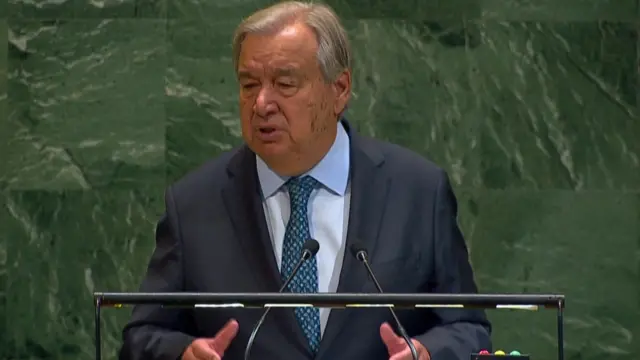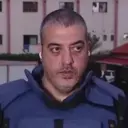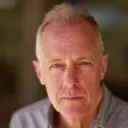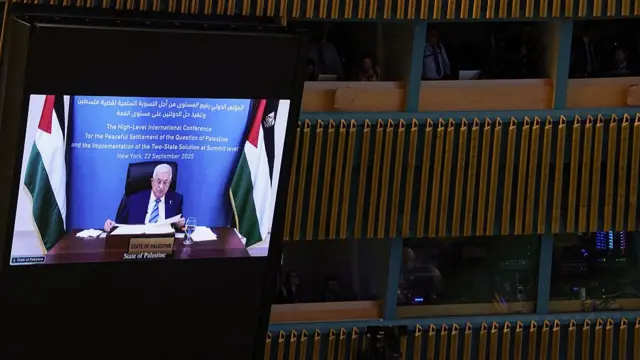UN has never been more essential, says secretary-generalpublished at 14:42 BST 23 September
In this moment of crisis, Guterres says, the United Nations has never been more essential.
"The world needs our unique legitimacy, our convening power, our vision to unite nations, to bridge divides, and confront the challenges before us," he says.
The UN needs to be stronger, more effective and more inclusive, he says.
"It's not enough to know what the right choices are, I urge you to make them," he tells the assembly.
He says the world "must never give up" and he won't give up in his mission for "peace, for dignity, for justice, for humanity."
With that, the UN secretary-general ends his address.
 Image source, EVN
Image source, EVN


















